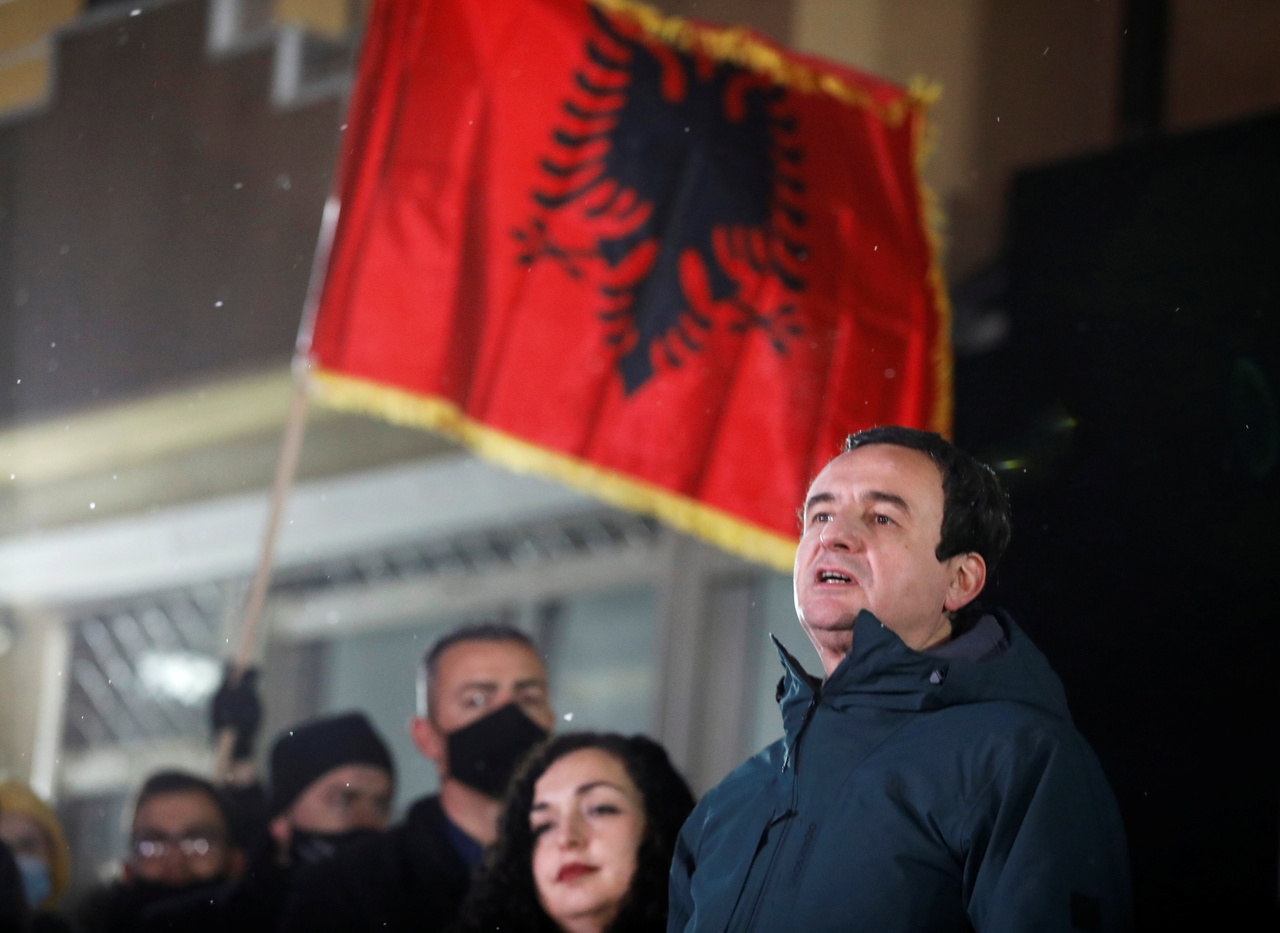Ex-Kosovo PM Albin Kurti stages comeback in election that may hurt Serbia ties more
Sign up now: Get ST's newsletters delivered to your inbox

Kosovo's Vetevendosje party leader Albin Kurti has won support on pledges to fight widespread corruption.
PHOTO: REUTERS
Follow topic:
PRISTINA (BLOOMBERG, REUTERS) - Ex-Kosovo Prime Minister Albin Kurti won snap elections in a comeback that could worsen already tense relations with neighbouring Serbia.
Kurti's party, whose last government lasted just four months, won 48 per cent in Sunday's ballot, according to preliminary results with 97 per cent of votes counted.
Four other parties are also on track to enter Parliament, as well as minority lawmakers who traditionally back the election winner.
"This is a big victory," Bahrie Ademi, a doctor from Pristina, told Reuters. "Finally the hope is back for the people and the state of Kosovo."
Less than a year after Kurti was ousted as premier because of disagreements over how to handle the emerging coronavirus pandemic, the former political prisoner has again won support with promises to tackle corruption and introduce universal healthcare.
"The main priority is justice and creating jobs," Kurti told reporters on Sunday evening. He said that dialogue with Serbia is not going to be among his priorities.
More importantly for the outside world is his pledge to leverage American support in Kosovo's intractable standoff with Serbia.
Kosovo is still at the crossroads of power struggles more than two decades after Nato intervened to halt the most recent of the 1990s wars that ripped Yugoslavia apart.
Although European Union enlargement is on the back-burner as the bloc fights Covid-19, any hope of joining and integrating with the West rests on mending ties with Serbia, which still doesn't recognise its former province's independence.
Kurti's bound to be a much tougher partner in talks with Serbia, which he blames for unsettling the region by turning to Russia and China.
Serbia considers Kosovo, a majority of whose population is ethnic Albanian, a cradle of its state and Orthodox religion. Russia, China and five EU members are also among the countries that don't recognise Kosovo.
Serbian President Aleksandar Vucic last month reiterated that his country won't acknowledge Kosovo's sovereignty under his leadership. US President Joe Biden, meanwhile, urged him a week ago to reach an accord with Kosovo based on "mutual recognition."
"Biden has been an unwavering supporter of Kosovo's fight for freedom and its cause for independence," Kurti, 45, said by email before the ballot.
"I'm hopeful he'll continue to support Kosovo not just as a young country, but as a young democracy that faces tremendous pressure from Serbia." Last year was rocky for the leadership in Kosovo, one of Europe's poorest countries.
Two months after Kurti's departure as premier, his political adversary, President Hashim Thaci, quit to fight allegations of war crimes. The economy, meanwhile, saw the aid and remittances on which it relies fall because of the pandemic.
With one third of its workforce unemployed and a gross domestic product per capita of US$4,300 (S$5,693), Kosovo remains the poorest country in the Western Balkan region.

